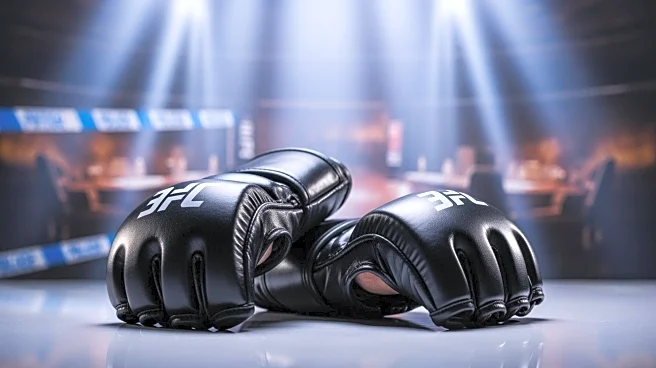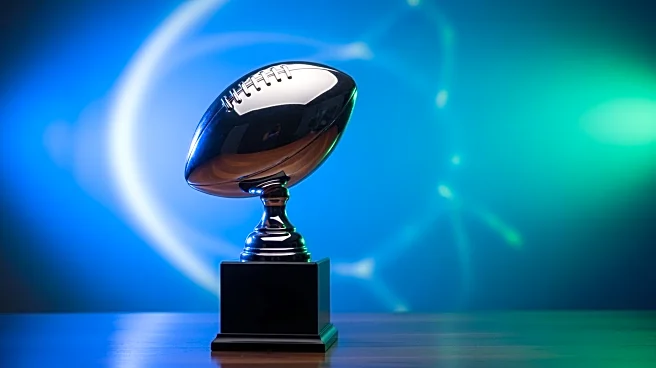What's Happening?
Russian UFC heavyweight Alexander Volkov has praised Georgian bantamweight champion Merab Dvalishvili for his use of trash talk as a professional strategy. In an exclusive interview, Volkov noted Dvalishvili's
active presence on social media and his efforts to remain in the spotlight, which he views as beneficial for his career. Despite the challenges of the heavyweight division, Volkov acknowledges Dvalishvili's ability to build a reputation through showmanship. Dvalishvili, now an American citizen, has managed to attract UFC's interest, demonstrating the effectiveness of his approach.
Why It's Important?
Volkov's comments highlight the growing importance of media presence and personal branding in professional sports. Dvalishvili's strategy of using trash talk and show elements reflects a shift in how athletes engage with audiences and promote their careers. This approach can enhance visibility and attract sponsorships, impacting the financial and competitive aspects of sports. As athletes increasingly leverage social media, the dynamics of sports marketing and athlete representation are evolving, influencing how sports organizations and fans interact with athletes.
What's Next?
Alexander Volkov is set to fight Jailton Almeida on October 25 in Abu Dhabi at UFC 321, which could further elevate his profile. Dvalishvili's continued use of media strategies may lead to new opportunities within the UFC and beyond. As athletes like Dvalishvili gain recognition through non-traditional means, sports organizations might adapt their promotional strategies to accommodate these changes. The success of such approaches could encourage other athletes to adopt similar tactics, potentially reshaping the landscape of sports marketing.
Beyond the Headlines
The emphasis on trash talk and media presence raises questions about the cultural and ethical implications of sportsmanship. While effective for career advancement, these strategies may challenge traditional notions of professionalism and respect in sports. The trend also reflects broader societal shifts towards valuing entertainment and personality in public figures, influencing how athletes are perceived and celebrated.









